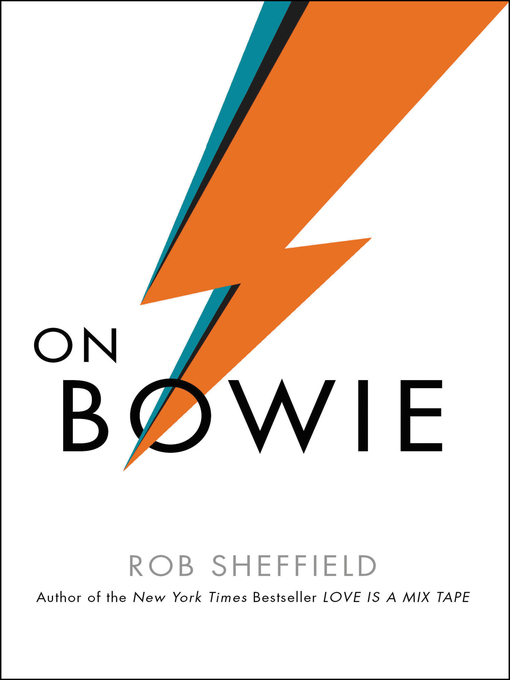
On Bowie
کتاب های مرتبط
- اطلاعات
- نقد و بررسی
- دیدگاه کاربران
نقد و بررسی

July 4, 2016
Not quite a biography, Sheffield's book, written shortly after Bowie's death earlier this year, focuses on the impact of the artist's music on pop culture and society. After an opening chapter called "The Night David Bowie Died," the book follows Bowie's career from his first hit, "Space Oddity" to the release of his final album, Blackstar, just days before his death. Written over the months following Bowie's death, Sheffield's book intertwines accounts of his own encounters with the artist's music and more biographical elements, in order to investigate the musician's legacy. Sheffield details the experiences that shaped Bowie's work, including a stoned viewing of 2001: A Space Odyssey and studying the Kabbalah and the Stations of the Cross. The timeline is mostly linear, but it often veers ahead to discuss how future generations enjoying Bowie's music might interpret his work. A quick and stylish read, Sheffield's eulogy-like piece memorializes Bowie while leaving the future of the artist's legacy open-ended. Sheffield contextualizes it with ample research and interviews throughout, keeping a personal tone while a tapestry of voices praise Bowie's music and its impact on their lives.

A critic's earnest elegy for the late rock star's influence on music, fashion, sexuality, and personal transformation.When David Bowie died on Jan. 10, 2016, Rolling Stone writer Sheffield (Turn Around Bright Eyes: The Rituals of Love and Karaoke, 2013, etc.) was well-equipped to put his career in context. A cassette of Bowie songs was in his boom box when he got the news, and unlike many critics who gave up on Bowie during the creatively depleted 1990s, the author not only kept up, but believed the singer was in the midst of a career revival. That enthusiasm sloshes and froths in this mash note, which was crashed to publication in a month. Sheffield is prone to cringeworthy overstatement (Bowie delivered his final opus, "Blackstar," because "he knew his death would make the world lonely"), head-scratching digressions ("C-3PO's Bowie-est moment is Return of the Jedi"), and an overused and overly cute habit of ending paragraphs with snippets of Bowie lyrics. This is all unfortunate, because when Sheffield tones down his jazz-hands-y prose, he's a cleareyed thinker about Bowie's place in the pop firmament. Blending personal recollections with a mad dash through his discography, Sheffield persuasively tracks the influence of one TV performance of "Starman," explores how Bowie's omnivorous appetite for drugs shaped his persona and music, and--Sheffield's particular emphasis--muses on how Bowie's rejection of sexual, musical, and sartorial fetters made him a one-man safe space for at least two generations of outcasts. "Bowie was all about eroticizing what you don't know for sure," writes the author, a sentiment that seems exactly right. Sheffield wants to demystify his hero, but only so much; after all, his Sphinx-like presence was part of his charm. But a better book would explore his often perplexing metamorphoses, not just clumsily honor his "Ovid-like sense of constant mutation." Sheffield is the right writer for this book, but its hasty production is evident on nearly every page. COPYRIGHT(1) Kirkus Reviews, ALL RIGHTS RESERVED.

























دیدگاه کاربران